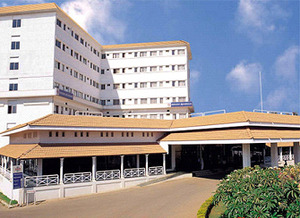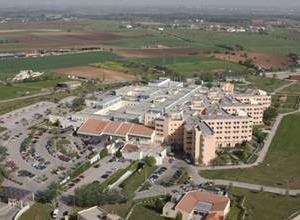Projects We're Working On
Narayana Hrudayalaya, Bangalore, India

Developing countries like India face the double burden of infectious and chronic diseases. Given the high cost of treating chronic diseases, it's imperative that health systems in these countries are re-oriented towards prevention. We have partnered with one of India's leading healthcare providers, Narayana Hrudayalaya, to use Sana to screen and manage chronic diseases in rural and semi-urban India. The initial focus will be on two disease groups: Oral/Cervical Cancer and Cardiovascular Diseases such as Coronary Heart Disease, Arrhythmias, and Heart Failure. We aim to train health workers and general physicians to use Sana to screen and manage these conditions, thus completing the "last mile" of telemedicine. Additionally, we aim to study the cost-effectiveness, scalability and sustainability of such a set-up.
Manila, Philippines

We have partnered with academic, government, medical, and nonprofit institutions in the Philippines to improve delivery of health care to both urban and rural areas there. Our champions from Asia Pacific College and local IT consultancy Integrated Open Source Solutions (IOSS) have kickstarted a local developer community, and will serve as the technical and operational support for ongoing projects in the Philippines. Our approach has been to identify existing clinical needs and then co-develop both technical and human solutions to achieve positive outcomes. According to the World Health Organization, cardiovascular disease is the number one cause of death worldwide, and monitoring trends and risk factors associated with cardiovascular disease is a key priority. To transform the way cardiovascular disease is identified in remote populations living in resource-poor settings, we have partnered with two microfinance institutions, Center for Community Transformation (CCT) and Negros Women for Tomorrow Foundation (NWTF), to design and implement a program to improve the identification, management, and treatment of patients with hypertension - one of the most prevalent disorders striking populations in both the developed and developing world. Sana will empower community health workers and family physicians to manage the treatment of patients living with cardiovascular disease with the goal of reducing long-term morbidity or mortality.
Swaziland, Africa

The Kingdom of Swaziland is a small landlocked country surrounded by South Africa and Mozambique. According to Human Development reports 2009, 69.2 % of population lives below the national poverty line; furthermore, only 19 % of the population can afford over 2 US dollars (PPP) per day. . Post-surgical follow-up is complicated by the fact that many patients return to their homes following surgery and are difficult to reach. Although statistics are not available, anecdotal evidence from surgeons at MGH suggests that many patients are initially lost to follow-up and eventually present with late stage complications. This problem may be explained by extensive distances that patients must travel, often 40 to 60 km, for follow-up care at MGH. Patients have to bear the costs of traveling of approximately 15-25 US dollars, pay for homecare for their children, and go without their daily wages. The end result is missing follow-ups, low adherence to prescribed treatment and high financial burden for patients that do seek follow-up. Taipei Medical University and Sana, in close collaboration with surgeons at MGH, are proposing an innovative method of providing decision support to health care workers at remote clinics by linking them to physicians using mobile phones. Briefly, a series of forms based questions and prompts displayed on mobile phones will be used to guide health care workers to assess patients following surgery and to collect information on each patient’s health status including photos of wound sites. Furthermore, the phone-based forms can provide decision support to health care workers and will allow for easy capture and transmission of photos of wound sites.
Trikala-Larissa, Greece

Diabetes continues to be the most common underlying cause of nontraumatic lower extremity amputations, mainly due to foot ulceration. Foot ulceration and amputation therefore cause extensive burden on individuals and health care systems in developed and developing countries. Due to the multi-factorial pathology of diabetic foot ulceration, in order to enable the experts to monitor an increasing number of patients more regularly, telemedicine has been suggested as a way of creating alternative treatment methods. Based on the existing literature on this topic SANA team has established a partnership with a consortium running EU-funded telemedicine research projects in Central Greece, (Thessaly University Department of Vascular Surgery Department of Medical Physics-Informatics, Municipality of Trikala Teleheath Service/ e-trikala SA, Faculty of Engineering Informatics and Telecommunications - University of Western Macedonia and VIDAVO SA) aiming to develop a platform with a diagnostic decision tree algorithm for diabetic foot tele-monitoring via an Android mobile phone and to run a pilot clinical trial to evaluate it. The patients will be offered home telemonitoring consultations during a visit by a specialized nurse, to substitute some of the visits to the outpatient vascular clinic of the hospital. The first stage of the project aims to create a prototype platform running on one Android phone, that will run the diagnostic decision tree algorithm for diabetic foot tele-monitoring.

